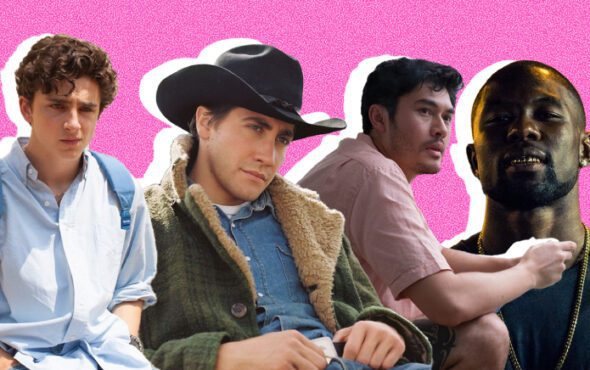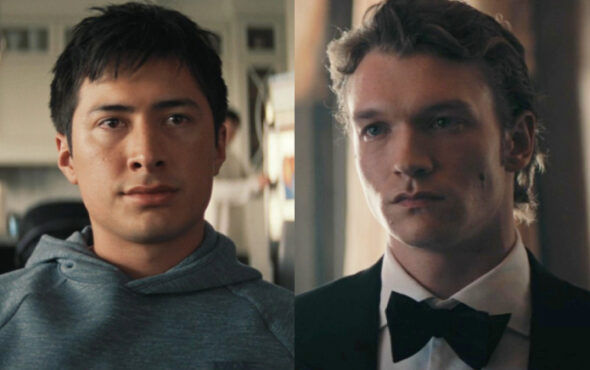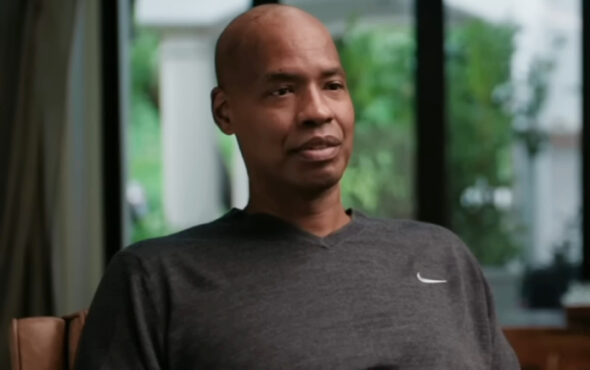
LGBTQ+ fans of “The Last of Us” are split over the casting of Nick Offerman as a gay character in the hit TV series, reigniting a long-running debate over whether straight or non-transgender actors should play gay or trans roles.
“Nick Offerman is the only straight man I’m okay with being cast as a gay character. He is the exception to the rule,” one viewer tweeted after the third episode of the HBO/Sky series, which features two men, including Offerman’s character, falling in love.
Critics say casting straight actors in LGBTQ+ roles deprives gay, bisexual and trans actors of opportunities to appear on screen and stage as characters they are best placed to represent.
Others point to the many LGBTQ+ actors who play straight characters, arguing that the mark of a talented actor is the ability to convincingly portray a wide range of different characters – regardless of their sexuality or gender identity.
Here’s what you need to know about the debate:
What is the controversy about?
Influential figures in the arts and some LGBTQ+ rights campaigners have spoken out about straight or cisgender – non-trans – actors playing gay or trans parts.
Accepting his 2016 Emmy for playing a trans woman in Amazon series “Transparent”, actor Jeffrey Tambor told the audience, “I would not be unhappy were I the last cisgender male to play a transgender character on television.”
Leading British TV writer Russell T Davies, who won plaudits recently for the 1980s AIDS drama “It’s A Sin”, said in 2021 he was “going to war” over the issue of straight actors playing gay characters, which he says deprives LGBTQ+ actors of opportunities.
“It is not a fair playing field,” Davies told the New York Times. “The equality notion is based on 50% this way, 50% that way. But 90% of actors are straight and 10% of parts are gay.”
But many actors say playing someone different is the essence of their profession, pointing to the wealth of LGBTQ+ actors, from Elliot Page to Jodie Foster and Matt Bomer, playing straight or non-trans roles.
The Oscars have frequently recognised heterosexual and non-trans actors for playing LGBTQ+ roles.
They include Tom Hanks for “Philadelphia”, Hilary Swank playing a trans man in “Boys Don’t Cry” and Rami Malek for portraying Queen’s lead singer Freddie Mercury in “Bohemian Rhapsody”.
What does Hollywood say?
Following increased scrutiny over the issue in recent years, greater consideration is now being paid to hiring LGBTQ+ performers, and actors have sometimes turned down roles in response to criticism.
A few years ago, Oscar-winner Halle Berry pulled out of a trans film role.
Others come prepared for questions if they accept roles portraying people from sexual or gender minorities.
Oscar-nominated star Viggo Mortensen, who played a gay man in his directorial debut “Falling”, told Openly in 2020 that actors are actors – whether playing gay characters or anyone else whose life experiences are different to their own.
“I apologise to all the proctologists for casting David Cronenberg,” Mortensen said of his decision to cast the renowned Canadian director as a colorectal surgeon in the film.
Are there similar debates for other minority groups?
Today, no casting director would hire a white actor to play a person of colour, but in the past it was common.
Infamously, British star Laurence Olivier adopted “blackface” makeup in the 1965 film “Othello”, which is now banned in many schools in both the United States and Britain.
It remains common for non-disabled actors to pick up roles as disabled characters, though some campaigners say that should also be challenged.
Speaking with Openly in 2020, the directors of a British film about a love affair between two teenagers, one of whom has Down’s syndrome, called for more honest media portrayals of disability.
“You’re still seeing actors portraying people with disabilities that don’t have a disability,” said Lloyd Eyre-Morgan.
“Yet there are so many brilliant actors out there that do have a disability and they’re not getting a look in.”
Reporting by Hugo Greenhalgh.
GAY TIMES and Openly/Thomson Reuters Foundation are working together to deliver leading LGBTQ+ news to a global audience.



